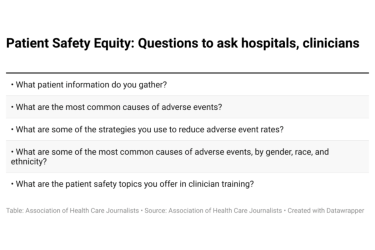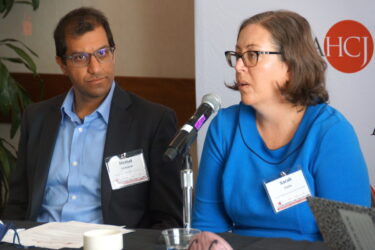
Natural disasters, wars, and pandemics amplify the health burden among people who are poor or marginalized. They also reveal the flaws in our health care system and expose the ways those inequities can hamper our ability to respond to a crisis.
In his book, “The Political Determinants of Health” (Johns Hopkins University Press, March 2020) and a video presentation to the AMA on Prioritizing Equity, Daniel Dawes makes a convincing case that social determinants of health like housing, transportation, education and access to care are the result of political decisions. Dawes is director of the Satcher Health Leadership Institute at the Morehouse School of Medicine.
The fallout from the global coronavirus pandemic substantiates that claim, as people from lower socioeconomic communities, racial and ethnic minority groups, immigrants and people with disabilities are more likely to die from COVID-19.
“When you think about all of the underlying conditions that have put Black, Indigenous and other people of color at greater risk of COVID or dying from COVID, the inequities that predated COVID didn’t just suddenly appear nor are they inapplicable,” Dawes said during the video presentation. “We know that many of these population groups live in neighborhoods that are largely devoid of health-protective resources or help-sustaining resources. And in fact, many of these determinants or drivers have created, perpetuated and exacerbated these inequities. So when we think about COVID today, it’s not striking all equally because our economic and social policies haven’t been benefiting all equally.”
Dawes, who has conducted years of multidisciplinary research on the connection between health inequities in under-resourced and marginalized communities and power and political engagement, discusses the ways in which structural racism and other types of discrimination derail efforts to achieve health equity.
“Health inequities owing to political action or inaction have become so structurally entrenched that it has been difficult to identify their root causes,” Dawes writes in his book. “To confront the structures and systems in America that impede health equity, we need to examine, understand, and leverage the underlying politics.”
He explains that our political system is rife with biases and that, even in the most dire health emergencies, political actions tend to help or favor some groups over others. Consider how policy decisions and politics influence the social conditions that generate health outcomes in terms of reduced life expectancy, worsening health outcomes, health inequity, and declining health care options. This includes poor environmental conditions, inadequate transportation, unsafe neighborhoods, and lack of healthy food options.
Dawes says the most successful health care policy advocates share a deep belief in and understanding of the outsize role political determinants play in creating a healthy and inclusive society. He chronicles the advocacy and political maneuvering that surrounded the Obama administration’s Health Policy efforts and the ensuing fight to overcome the many challenges associated with implementing the Affordable Care Act, which he calls one of the three biggest advances in health policy, along with the Social Security Act, Medicare and Medicaid.
It is by understanding the political determinants, as well as their origins and impact on the equitable distribution of opportunities and resources, that health advocates are better equipped to develop and implement actionable solutions to close the health gap.
“For far too long, we’ve simply been nibbling around the edges of the problem of health inequities,” he said in the AMA video series, “Prioritizing Equity.” “If we seek to effectuate lasting changes, then we have to connect the social determinants of health to their political roots.”
“The Political Determinants of Health” makes a convincing case that health journalists should add another layer to health equity reporting. When chronicling health disparities and inequities, it’s important to include the political decisions that caused or exacerbated them. For example, the refusal to expand Medicaid and efforts to discourage COVID-19 vaccination are two such political determinants that have already resulted in negative health consequences.








